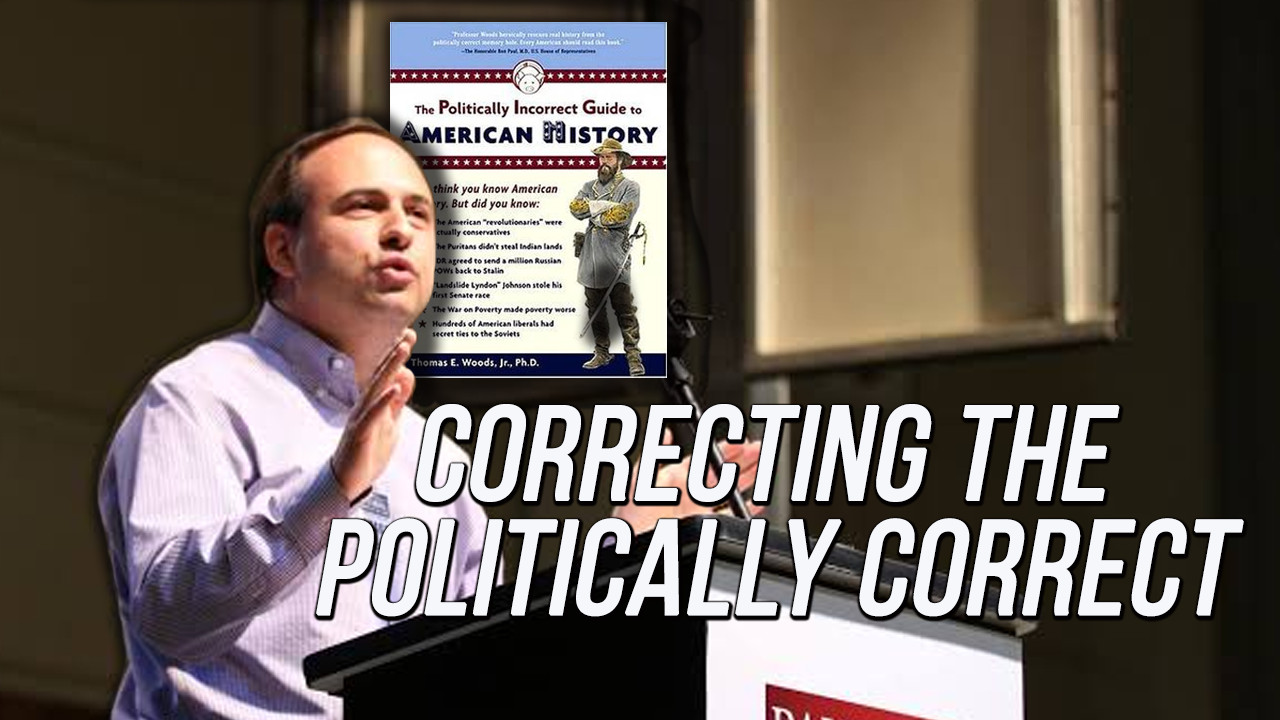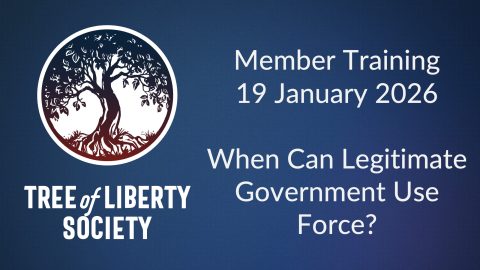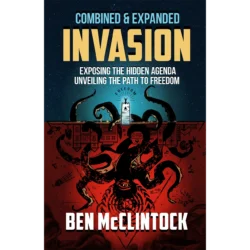Part of our initiative aims to safeguard discussions and presentations that are no longer accessible, focusing on the principles of liberty and the associated threats.
This includes a speech delivered by Thomas E. Woods, Jr., Ph.D., on October 29, 2005, during the National Council Dinner of The John Birch Society in Orlando, Florida.
The address provides a humorous and inspiring account of Dr. Woods’ intriguing personal experiences as he emerged as a newly recognized best-selling author of The Politically Incorrect Guide to American History.
Help support ad free content with a one time donation or becoming a member today.
Thank you to our sponsors
https://connollyandsonsconcrete.com/
https://www.dentistry4health.org
http://www.highercallingfirearms.com
http://www.americanappliancehvac.com
https://insurewithcompass.com/sbarlow.html
TRANSCRIPT
I’ve obviously done something terrible to offend Jack McManus. I can tell because he’s having me speak not only after this wonderful new member of Congress we’ve just gotten to know, Virginia Fox. We all love her. But I’m also speaking after one of the great heroes of the 20th century, Ron Paul.
So I thought, do we lock the doors out here after Ron Paul finishes to make sure there’s still somebody in here? So anyway, thanks a lot Jack, I appreciate that so much. I may as well at least note, by the way, that, you know, given that we’ve just heard really from two politicians, it’s a little hard to make politician jokes now. I feel like I don’t want to hurt their feelings. I mean, I know they would understand, but even still, you know, because, you know, as I say, we’re dealing here in particular with Dr. Paul. I’ve followed his career a good long time, and he’s one of these people that lobbyists don’t even bother to visit. What’s the point?
He’s either with us for free already, if it’s constitutional, And if it isn’t, then there’s no point in wasting our time. And so I think Ron Paul, and I believe also Virginia Fox as well, are an exception to the rule, the rule that when a politician wrestles with his conscience, he usually wins.
I stole that from Joe and as I do almost all my jokes, there’s a guy who writes things that as soon as you read them you say, “This is brilliant and obvious and yet I would never have thought of it in a million years.” Well ladies and gentlemen, I’m going to be brief with you this evening and just share a few words about, not just simply my book, but about American history in general. As Jack McManus mentioned, I wrote this book, came out just about a year ago now, the politically incorrect guide to American history. I cannot take credit for the brilliance of that title. That is just marketing brilliance because there are people in this country, God bless them, who as soon as they heard that title said, “I’ve gotta drop everything and go out and buy this thing.” So it’s just absolute marketing genius. And when it came out, it was published by Regnery, which has been publishing conservative books since the late 1940s. And Regnery has got media connections like you would not believe. They know everybody. They can book you over all of creation. And so I was able to have my launch day, which is the day that the book officially appears, begin with an appearance on Hannity and Colm’s at night on Fox News Channel. Now neither Hannity nor Colm’s had read the book, which is probably just as well.

And I don’t I say that not to criticize them I mean people who have a daily television program if they had to read all the books They have a three authors every program it would be impossible But they had the press materials and they were looking at it And I think Sean Hannity gave me a bit of a pass because he looked at the title and thought I bet I’d probably like this book It’s not really his kind of book though. I’ll just say that it’s a different kind of conservatism Alan Colm’s knew right away. He didn’t like this book. That’s for darn sure. But what I found, though, was that even though I had a little bit of an exchange with combs, when people told me later was, “That’s what sells your book. If you get on there and people are throwing you soft balls,” people say, “Well, isn’t that sweet and quaint?” But if you’re really going toe to toe with Alan Combs, that gets people’s attention. So I thought, “Oh, that is brilliant.” Well, then the next morning, I was on the morning show that they have on the Fox News channel called Fox and Friends.
Now, I’ve never watched this program because I’m frankly never up at seven in the morning or whatever it’s on. So I had to pretend I knew who these people were and they’re all perky and happy and full of zeal that hour of the morning. And you think, by the way, they’re just doing that for the cameras. No, the cameras go off and they’re still joking and laughing. I thought there’s something to matter with these people. How are you able to But it’s it’s you know, I’m an academic so I mean I I don’t I never get up at seven I I resent having to get up at night basically So there I was and sure enough though this was the morning when I got the I got the softballs because I the brief segment that I had with them reminded me of what it must have been like to be Hillary Clinton being interviewed by Katie Couric Every question is a softball right over the plate. What’s the worst right -wing distortion of your views? Right over, they would ask her a question like that. Well, that’s the sort of thing I was getting. What are the five worst myths of American history?
Oh, great. So I talked about the New Deal, and I talked about Joe McCarthy supposedly being a bad guy, being a myth, and this is all going out actually on national television, which I couldn’t, only later did it strike me. This is something unusual, I think, that views like this are being expressed on television. Maybe they didn’t realize what they’re allowing me to say here on television. Well, what I found was that this was actually my third book, and I found that you can’t help it, okay? You cannot help it. If you have a book come out and it’s doing pretty well, it’s human nature. You’re going to go back to your hotel room and see what your Amazon sales rank is. Okay? Now, for those of you for whom this is generationally something new, Amazon .com is the internet bookseller, and they rank all three million of their products from one to three million in order of how many copies they’re selling, and you just can’t resist. You try to resist, but you’re drawn to it. You’re drawn to it you hear the word Amazon being chanted you’re drawn to you’ve got to type it in and sure enough I went on Amazon the night when I got back from Hannity and Colms and after doing Alan Colms’ radio program and there was the book at number 57 out of 3 million products so I thought wow we are really going to town here.
So then so of course I’m emailing my wife. It’s too late to call. I’d wake up the kids. I can’t believe we’re at number 57 Unbelievable next morning Fox and friends. I rush back from there Put it back on number 21 Unbelievable what’s happening right?
Okay, so then as the day goes on naturally now. I just can’t stop myself.

Next time I checked it was at number 10. This is unbelievable. I can’t, is there, then I’m on the train coming home from Manhattan. I get a call from them saying that we’ve hit number six. I said, “You are kidding me.” And then Amazon ran out of copies. And I said, “Oh, this is just not fair. Come on now. Come on, at Christmas time, you’re run out of copies.” And sure enough, it started saying instead of usually ships in four hours, it would say usually ships in four to six weeks at Christmas time. So I thought, well, there it goes, I’m just a nobody now, and the whole thing is down the drain, forget it, no one’s going to want to buy my book, and I may as well just crawl back into my cave. But I realized that actually the Amazon rank for the book stayed in the top hundred for three months, even as during the time that people thought they had to wait four to six weeks for it. So I thought something is going on with this book, it has struck a chord with people before they’ve even had a chance to read it. So it was a wonderful experience for me, and I can’t say enough about it. But it wasn’t all pleasant, we’ll just say that, because eventually other people started reading the book. Let’s say non -constitutionalists,
I’m sorry, because the book is written from a constitutionalist point of view. And one of the things that most alarmed people But it was precisely that it was fun to read, accessible, it’s easy to pick it up and read it in little bits and the text is broken up with little boxes like the famous quotations or one thing that I came up with was occasionally I’ll have a box that says, “A book you’re not supposed to read.” which is like one of our sort of books that you’re not you know the left doesn’t want you to read so I call them the books you’re not supposed to read so it’s got this very accessible format and it’s cute and fun so you don’t even notice frankly how constitutionalist it is in a way because it seems so cute and fun you don’t realize you’re being indoctrinated well that’s not quite the one But you understand my drift is that you almost don’t even realize that this has a particular point of view. It just seems fun and upbeat. And this seemed to be the most dangerous thing about it, according to my critics, because people might actually read this book and enjoy it and think of the consequences if that happened. So for example, I got The New York Times to make note of the book, because once it peaked at number eight on paperback nonfiction. And at that point, if you look at the New York Times best seller list online, they’ll actually have a hyperlink to a review of the book if they have reviewed it. Well, for several weeks, my book was on the list. It was like the only one that hadn’t been reviewed. They’re just going to ignore this one. Maybe it’ll just go away. Well, then hit number eight. And I remember that we shop at a supermarket chain that carries the top five sellers, but they list the top 10.
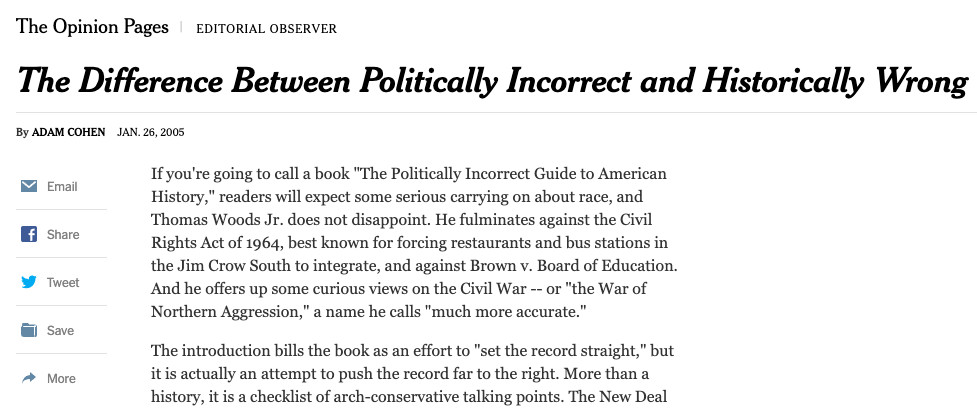
And I remember I do some of the food shopping when my wife is in a family way, so to speak. And so there I am with my cart, I couldn’t help it. Of course I had to stop and look, and there I am on the list. This is so much fun. The New York Times didn’t think it was as much fun as I did, however. (audience laughing) Because they didn’t just review the book. You’d think maybe they’ll review it, and they hate it, and this is gonna be the end. No, they wrote an editorial against me. I mean, it was on the editorial page. How do you like that? I mean, talk about rubbing them the wrong way.
And let me just share with you a little bit of what I had to say, because this is the most amusing part of all. Hardly any of it actually tried to say, “Well, Wood says X, but the truth is Y. The article pretty much went, and you can find it online, I think, if you search for it. What it really said was, “Wood says X. Can you believe that? Who does this guy think he is saying X?” And that was pretty much it. Well, interestingly, because we could tell from the sales patterns, this book, or pardon me, this attack on me in The New York Times, led to a to spike in sales, which reaffirms my confidence in the basic good sense of the American population that they looked at the New York Times and said, “Well, if the New York Times is this agitated, then I have got to get a copy of it.” So it was great fun, and people were saying to me, “You should consider this like you’ve just won a Pulitzer or something.” But you have to imagine this happening to somebody who is totally a sort of Clark Kent mild Manor type figure, you know, it writes academic books that, you know, 17 people buy copies of, and 16 of them are me, and now all of a sudden this thing is going on, and I think at this point we’re somewhere between 80 and 100 ,000, as of now, which for nonfiction, if you’re not a radio talk show host and you can’t plug your book every day, it’s very, very hard to get up there. So it was just a combination, I think, of the title being so catchy and the fact that, as I say, it’s accessible.
People who wouldn’t normally pick up a history book realize that it’s of an easy length, it’s an easy read, and this and that. In fact, one of the frustrating things about it is how short it is. I was instructed solemnly that it must be kept to 80,000 words, which may sound like a lot, but I’m telling you, you want to say everything you can say about the truth of American history, that goes by so fast. I had to cut out two whole chapters to make room. I submitted a hundred thousand words thinking they just wouldn’t count.
You know, to hand it to them, they know marketing and their idea is that we want it to be of a length that will be readable. Well, I’m happy to report that Regnery has now decided to do an entire series of books called “The Politically Incorrect Guide to Blank.” Oh, it’s a beauty.
No, they counted, they actually wrote back and said, “Yeah, we love it, but it’s about, oh, twenty thousand words too long, so why don’t you go back and cut?” So I cut nine thousand, which each word being like a dagger through my And I sent it back, said, well, again, maybe they won’t count. Well, apparently, Regnery is so wealthy from all their best sellers, they’ve got a full -time counter over there or something, who came back and said, we think it’s on the order of, oh, I don’t know, 11,000 too many now. So in consultation with me, we cut some of this out. And it was a shame. So whole chapters are either in cut and half, or they’re not there anymore.

There is one out already, after mine, just came out called the politically incorrect guy to Islam and the Crusades.
That’s written by, that’s not written by me, it’s written by Robert Spencer, who, according to his bio on the back cover, lives in a secure, undisclosed location. And then next month, well, I guess about three weeks from now, Tom Bethel, I mean some of you have read some of his pieces, but Tom Bethel is a great guy, has a book called “The Politically Incorrect Guide to Science,” where he’s going to go after every scientific myth that we’ve had shoved in our faces, and also all those things you’re not supposed to talk about. Like, remember when Larry Summers of Harvard innocently mentioned that perhaps there was a difference between men and women’s brains? And then he spent the next three weeks apologizing and giving out free goodies to people To make up for his insensitive comment. Well, that’s the sort of thing that is going to be in the politically incorrect guy decides This thing is just a potential gold mine in terms of the ideas you could do I mean a politically incorrect guy to feminism. I mean you could just go on forever unbelievable. Well, anyway It’s not just the New York Times though that had a little fun with me The New York Times as I say their editorial would consist of things like and he says the New deal didn’t get us out of the depression. Well, OK, that’s just a simple statistical thing, though, right? I mean, if unemployment is averaging 18 % from 1933 to 1940, that does not count as getting us out of the depression. I mean, hello, what’s the challenging thing about this? Or can you believe, Woods says, that the Marshall plan is not responsible for Western Europe’s recovery? Doesn’t he know that Western Europe was doing badly? Then we had the Marshall plan than it was doing better, so the Marshall Plan must have caused the recovery? Because that’s not a logical fallacy at all. Well, in fact, what I show in there is that the free market is responsible for the revival of Western Europe, not some foreign giveaway program. International welfare doesn’t work any better than domestic welfare works. So I went on, and that’s a sacred cow.
That Marshall Plan thing, I mean, there are conservatives who think the Marshall Plan is like a sacred thing. We all have to defend it. I mean, there’s nothing conservative about it in any way, and I show that in there. But as I say, it’s not just the New York Times. It was also, and there’s no point listing all of them, because believe me, we would have to have a weekend conference to go through the attacks. But I also had, by the way, a lot of friends, a lot of very, very good things things happened. Pat Buchanan was a wonderful supporter throughout all this. On the McLaughlin Group’s year -end program, he voted me the most original thinker of 2004. And I thought, well, you know, I said, could you do something nice for me? That was a bit much. I mean, it sounds like, well, what am I, Moses or something? I mean, this seems a little bit extreme. But in any event, there was in particular a man, some of you may know, anybody heard of a writer whose name is Max Butte. That is his actual name, by the way, Max Butte. Well, actually, it may not be his actual name, but that’s the name he goes by. That’s the name he’s using these days, Max Butte. And for some reason, every time I hear the name Max Butte, I think of that line in 1984, Orwell’s book, about what the future is going to look like in the world, the way things are going. And the answer was, Imagine the image of a man’s boot crushing a man’s skull forever.

And when I hear Max Boot, I just think that. I think of a big boot on somebody’s head, because when you read Max Boot’s columns, he’s absolutely a raving lunatic. I mean, just about everything he says. Like, he thinks that the way to solve the problem of not having enough troops in Iraq would be to tell the whole world that everybody gets free American citizenship if they’ll come over here and join the army.
But anyway, I mean he’s got other, I couldn’t possibly parody him, he’s got all these things. Well anyway, Max Booth was upset because the weekly standard, to my astonishment, gave me a brief but favorable review. I thought well this, I don’t know what happened, somebody was drunk, I don’t know how this happened. So Max Booth then wrote a scathing review on the weekly standard website. Now you can’t do that.
You’ve already reviewed the book. It’s too bad. Somebody beat you to it in the magazine. You cannot put another review on the website, but that’s what he went ahead and did. And again, he went after me on all the usual things, but I want to take just a couple of quick examples of the things that I was accused of getting wrong. He says, “Now Woods tells us,” and I raise this particular issue because this has been raised tonight. Woods tells us that if war is to be declared, Congress must be consulted and the President cannot just send troops anywhere he likes. Oh boy, what a simpleton this Woods is, Max Booth says, because doesn’t Woods know that the President hundreds of times in the past has committed troops around the world without first consulting Congress? So I thought, well, that’s quite an astonishing claim he’s making it turns out that this claim this is what by the way this is a claim that is absolutely common to the neoconservatives they have two responses when you say to them the president does not have the power to send troops anywhere in the world and the Constitution makes perfectly clear that the Congress declares war and then afterward the president as commander chief directs the war the two responses of neoconservatives are to use the argument we just seen from max boot or for the less educated neoconservatives is the old standby of, “Hey, look over there,” and then they run away. [laughter]

Well, this one, though, this particular argument, has been used — it was used in 1950 when Harry Truman went to war in Korea without getting a declaration of war. He said, “Yeah, he doesn’t need a declaration of war because, first of all, it’s not a war. It’s a police action.” Oh, well, all right, then. How silly we were.
Tens of thousands of Americans killed. That doesn’t qualify as a war. But also because the United Nations has approved it, so what need would I have to consult the Congress? Oh, another winner of an argument there. But when people, while Senator Taft, at least at the time said, you know, this is, I don’t think this is the right way to go. I think Congress needs to be consulted. The White House then, and then at the time of the Vietnam War, trotted out this hundreds of times argument.
Oh, the president has done this hundreds of times. Turns out if you investigate this claim, here’s what it boils down to. It is only true if you count little chases of cattle rustlers across the border into Mexico as a foreign intervention. You count all those up, it comes to about 125. So in other words, three guys steal some cattle, go into Mexico. The president says, “Hey, let’s get five soldiers to go down there and get the cattle.” They’re saying that’s exactly the same as sending a million Americans to defeat a foreign government halfway around the world. See, to me, I think there’s kind of a difference between those things. But this was the type of argument that was being made. And then all the other neo -conservatives were saying, “Boy, that Max Boot sure showed Tom was a thing or two.” And I thought, “Are they all just idiots? Do they all think that chasing cattle rustlers is the same thing as going to war? It’s crazy.” The other thing was, I have a whole chapter on something called the principles of 98, which put very, very briefly, was the idea that is expressed in the, and by the way, when I say 98 and it’s something good, I can’t mean 1998, okay? We’re talking 1798. Thomas Jefferson and James Madison, when they drew up the wonderful and often overlooked Virginia and Kentucky resolutions of 1798, proclaimed that the states needed to have the right to declare unconstitutional laws to be unconstitutional and then refuse to enforce them.
Now that’s a radical position, and it’s one you hardly hear mentioned now, but Jefferson’s position is very simple to follow. The federal government is limited. It’s strictly limited to those powers delegated to it in Article I, Section 8. The states reserve the remainder of the powers, and if they believe that the federal government is encroaching on their powers, well then they can nullify the offending laws. And Jefferson went further. He said that if the federal government is allowed monopolistically to determine what its own powers are, then the game is over.
If you say that only the federal government gets to interpret the Constitution, think of what would happen if you and your neighbor, no matter how close a friends you are with your neighbor, entered into a contract and only your neighbor could interpret the terms. Oh Oh my gosh, it would be a disaster, because it’s human nature that if only one side of a contract can interpret its terms, that side will take advantage of the other side. And likewise in this case, the states are going to be totally eclipsed if they can’t make their interpretation of the Constitution count for something. So as soon as you say the federal government gets to interpret the Constitution, and that’s the final word, then you have no right to be surprised when it starts handing down judgments in its own favor consistently.
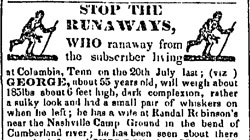
Well, these ideas spread like wildfire in early American history. And in my next book, which will be out, I hope by the end of next year, I’m going to develop this particular theme. There were northern states, southern states, who appealed to this. In fact, in 1859 in Wisconsin, when the Wisconsin Supreme Court had to deal with the issue of the fugitive slave laws, which were particularly obnoxious ways of enforcing the constitutional clause about returning runaway slaves. The Fugitive Slave Act of 1850 was unbelievably obnoxious in what it demanded of people. And so it was of dubious constitutionality. Wisconsin was just ignoring it. And the Wisconsin Supreme Court, when challenged on this, quoted Thomas Jefferson’s Kentucky Resolutions of 1798
almost word for word. Because everyone knew these documents, it was just common currency. Whereas today, you even mentioned them while you were a crank, you were a weirdo. And so Max Booth said, “Well, I guess Thomas Woods has been reading a lot of John C. Calhoun or something.” But he doesn’t want to mention Thomas Jefferson because as soon as you say Thomas Jefferson thought the states could nullify unconstitutional laws, then people might listen because everyone respects Thomas Jefferson. So at all costs, the of rule book as is rule number one don’t ever mention Thomas Jefferson because the people might get some ideas. So I got all this that where does Woods get these crazy ideas and he thinks states can nullify laws and who came up with that idea? Well Jefferson came up with that idea. Of course in 1998 I don’t know about you folks but I don’t remember any 200th anniversary celebrations of these documents in Washington DC that Bill Clinton held for the country. I don’t actually recall that I think probably because they’re afraid we’ll get ideas, okay, we certainly can’t have that. Well I say this though not to give the impression that oh it’s just woe is me, it’s been nothing but misery. I’ve taken some pretty rough hits from a lot of people. But when you consider what some of the people sitting at this head table have taken over the years, I mean I’ve had a walk in the park so I have absolutely no right to complain. It’s actually been really enjoyable because now for the first time I really feel like I’m out
there fighting the bad guys because they’re biting back for a change. So I must be doing something right is the way that I’m thinking. Well let me just close with one, two sentence little story and I just mentioned this, it’s coincidental that it happens to be around Christmas time but I heard a story, last Christmas a lot of people apparently bought the book and gave it as a Christmas gift and I just heard second hand the story of a gentleman who bought, I think it was five or six copies of the book for friends and family for Christmas and then the next day after purchasing those books he woke up and in his bed he was surrounded by precious gems. It’s an amazing story.
Now these results are not typical, I’m told, but that was just shameless. I’m allowed one shameless comment in the course of the whole.
Well, ladies and gentlemen, I think though that the lesson that I’ve drawn from this is that it’s a good thing when the bad guys are upset at you and as soon as they stop attacking you, that’s when you’ve become just another mouthpiece for the regime and you have stopped doing history the way it should be done. So thank you all very much.

